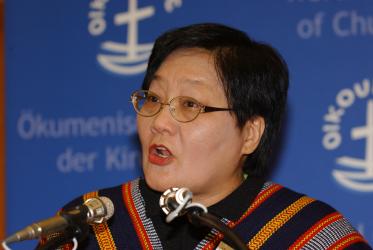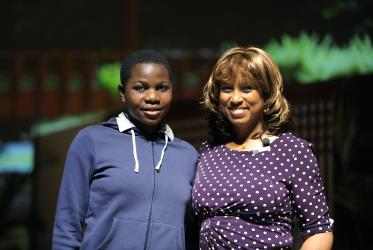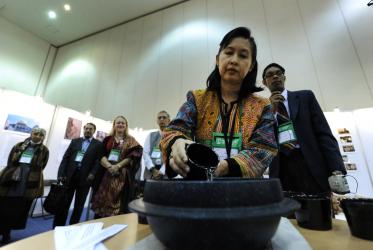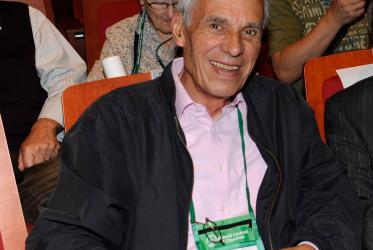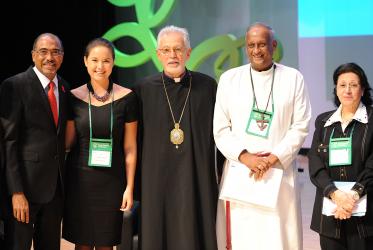Displaying 121 - 140 of 150
Religious leaders urge a ban on fully autonomous weapons
02 April 2015
Pilgrimage of justice and peace gives vision for WCC programmes
22 November 2014
Church in Philippines launches book on HIV and AIDS
19 February 2014
Senturias named to human rights board in the Philippines
18 February 2014
After Busan: A pilgrimage of justice and peace
29 January 2014
Churches commemorate Week of Prayer for Christian Unity
24 January 2014
Assembly renews churches’ commitment towards justice and peace
08 November 2013
Message of the WCC Assembly: “We intend to move together”
08 November 2013
Issues of justice in focus at WCC Busan assembly
06 November 2013
Hope born in the womb of God
05 November 2013
Religious leaders highlight significance of water at WCC assembly
04 November 2013
Religion, Power, Politics: A conversation with Konrad Raiser
01 November 2013
Participants connect assembly theme to their realities
31 October 2013
WCC assembly ready to open, watch from afar
25 October 2013





